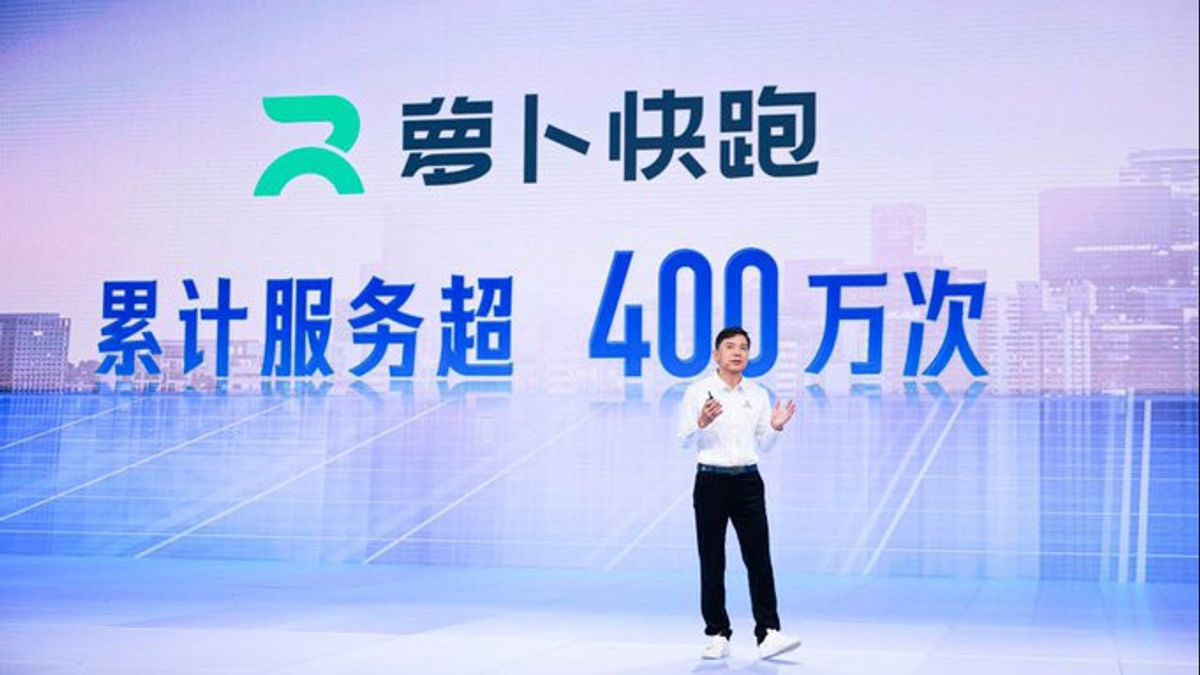JAKARTA - Chinese tech giant Baidu has ordered artificial intelligence chips from Huawei this year. This is reported by two people who are familiar with the problem. This fact also adds to the signs that the pressure on the United States encourages China's acceptance of their own company's products as an alternative to Nvidia.
One source said Baidu, a leading AI company in China, which operates Ernie's big language model (LLM), placed orders in August. This was done before a new regulation highly anticipated by the US government that in October tightened export restrictions on chips and chip equipment to China. This includes the US giant chip, Nvidia.
Baidu ordered 1,600 AI Ascend 910B chips from Huawei Technologies - developed by Chinese companies as an alternative to Nvidia's A100 chip - for 200 servers, the source said. He also added that in October, Huawei had delivered more than 60% of the order, or about 1,000 chips, to Baidu.
The second person said that the total value of the order was around 450 million yuan (Rp967.5 billion) and that Huawei would ship all of these chips by the end of this year. The two men declined to be named because the details of the deal were confidential.
Although the order was relatively small compared to the thousands of chips ordered by China's leading technology company from Nvidia, sources said it was significant. This shows how some Chinese companies can switch from the US company.
Baidu, along with Chinese colleagues such as Tencent and Alibaba, is known as Nvidia's old client. It was previously unknown that Baidu was a customer of Huawei's AI chip.
While Ascend Huawei's chips are still considered much lower in performance than Nvidia, the first source said they were the most advanced domestic options available in China.
"They ordered 910B chips to prepare for a future where they may no longer be able to buy from Nvidia," the first source said.
Baidu and Huawei did not respond to requests for comment. Meanwhile Nvidia also declined to comment.
The Huawei website says that since 2020 it has been working with Baidu to make their AI platform compatible with Huawei hardware. In August, the two companies announced that they would deepen the compatibility between Baidu's AI Ernie model and Huawei's Ascend chip.
Baidu has developed a series of their own AI Kunlun chips, which companies say support AI computing on a large scale. But the company mostly relies on A100 Nvidia chips to train their LLM.
After the US last year imposed rules stopping Nvidia from selling its A100 and H100 chips to China, the company issued new A800 and H800 chips as alternatives to Chinese customers, including Baidu. Nvidia can no longer sell the chips to China because of October rules.
اقرأ أيضا:
Analysts predicted last month that US restrictions would create an opportunity for Huawei to expand its home market of US$7 billion (Rp109.5 trillion). The company has been the subject of US export control since 2019.
This order adds to the signs of technological advances for Huawei, as Beijing invests the domestic semiconductor industry to catch up with foreign competitors and encourages state-owned companies to replace foreign technologies with domestic alternatives.
Huawei attracted significant global attention last August when it unexpectedly launched a new smartphone that analysts say uses an internally developed processor with advanced semiconductor technology. It also highlights the company's progress in chip development despite sanctions.
In September, Reuters reported that Huawei's internal chip design unit, HiSilicon, had started the delivery of a new Chinese-made processor for surveillance cameras to clients in 2023, showing signs of another comeback.
The English, Chinese, Japanese, Arabic, and French versions are automatically generated by the AI. So there may still be inaccuracies in translating, please always see Indonesian as our main language. (system supported by DigitalSiber.id)


















